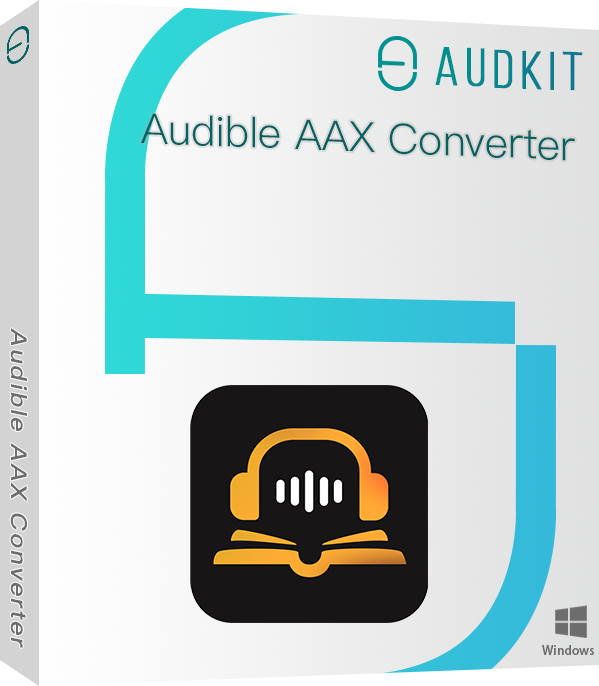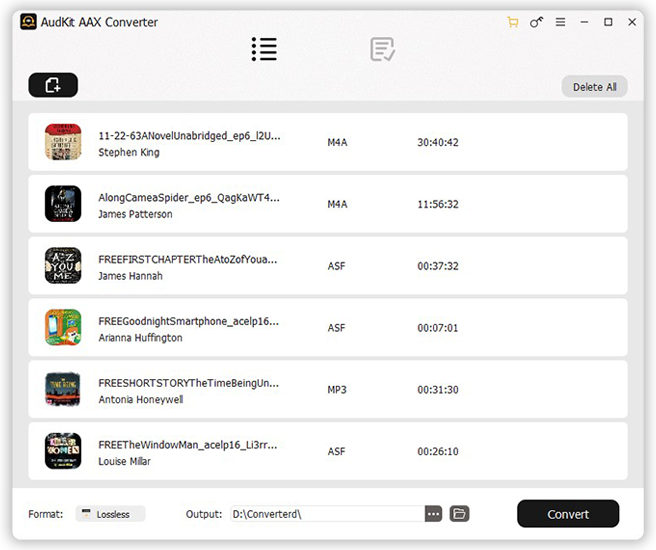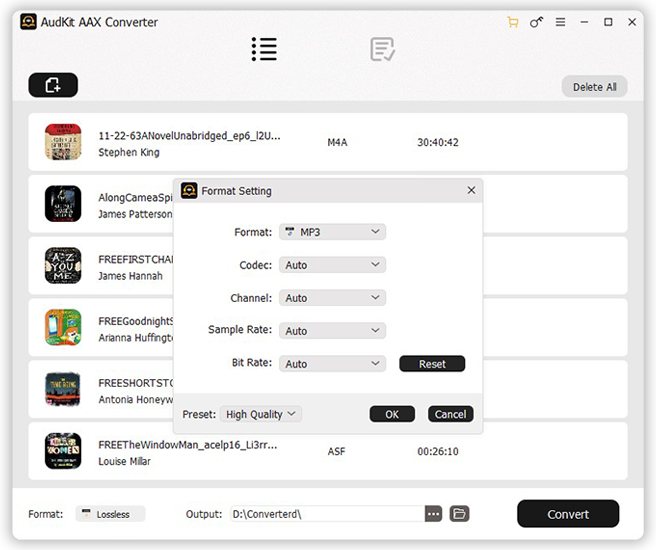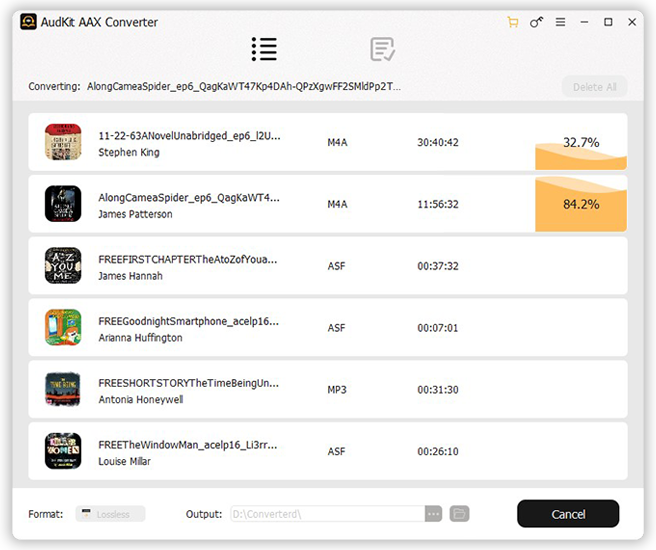Have you ever tried to import Audible audiobooks to a portable MP3 player for offline listening? Then you will find out this method not working. The reason for this issue is simple: The Audible files are not compatible with your MP3 player.
But no worry. In this post, you will get a simple way to rip Audible to MP3 without effort. Besides, if you are wondering whether you should rip Audible books to MP3, you can get to know the pros and cons of the MP3 format in the last section. Then make you final decision.

- Part 1. Tool to Rip Audible Files to MP3
- Part 2. Steps to Rip Audible Books to MP3
- Learn More: Pros and Cons of MP3 Formats
Part 1. Audible Rip to MP3: Tool You Need
Audible uses AA and AAX to maintain digital protection in the audiobooks. All Audible books in your library are saved in these 2 formats.
The digital protection enables users to play Audible books within the Audible app only. That means you can’t transfer Audible files to a device without the Audible app installed, or unverified by Audible. That is the reason why need to use AudKit Audible Converter as assistance. This converter is customized to convert Audible books to MP3, M4A, AC3, AAC, AIFF, and different types of audio formats. Based on the most advanced technology, this smart program is able to identify and keep the original chapters and ID3 tags, including title, author, date, and so on.

Key Features of AudKit Audible Converter
- Remove the digital protection from Audible audiobooks
- Download Audible books for playback without using Audible
- Convert Audible books to MP3 and other audio formats
- Auto-cut Audible books relying on chapters, segments, or hours
The goal of this converter is not to circumvent the protection in audiobooks for that you owned these books in your Audible account. This software aims to help you backup your purchased audiobooks to a most-used format and play them on more devices.
Part 2. Rip Audiobooks to MP3 from Audible: Detailed Steps
In this part, you can see the process of ripping Audible to MP3 step by step.
Step 1
Step 1
Please make sure that you have downloaded your purchased Audible books on the computer. Download and open AudKit Audible Converter on your computer. On the main interface, click the “Add” icon to import the Audible files to AudKit from your local folder on the local computer. Or you can just drag and drop the local Audible AA/AAX books into the main window of AudKit.
Step 2 Change the output format to MP3

From the bottom of the program, hit the “Lossless” bar next to the “Format” icon. Now you are able to reset the output format to MP3 for your audiobooks. There are other options for customization, such as codec, channel, sample rate, and bitrate. If you don’t know which one to choose for your Audible books, just select the “Preset” to “High Quality” to keep the best output quality.
Step 3 Rip Audible to MP3 with one click

Now hit on the “Convert” bar from the bottom right corner. AudKit will be activated to rip and convert Audible AA/AAX formats to MP3. Once the converting process is finished, you can see a red tip showing on the “History” icon. Tap it to check the list of converted files. Then hit the “search” icon that is next to the title to locate the local “Converted” folder.
You have successfully rip Audible books to MP3 now.
Learn More: Advantages and Disadvantages of MP3 that You Should Know
MP3 is one of the most used formats for coding and compressing audio. One of the most obvious advantages of MP3 is that it reduces the size of files. Compare with the standard CD audio file, the size of the MP3 file is one-twelfth of it. The smaller size makes MP3 files easier to move and store. That means you can store 12 times more of the audio files in the same device when they are in MP3 formats. And that is why MP3 is supported by most commercial portable media players.
The notable disadvantage of MP3 is lossy quality. It may disregard some specific data, such as the louder or the softer background frequencies. There is also another common limit in the lossy files including MP3, which you may hear some noises that not existing in the original audio.

